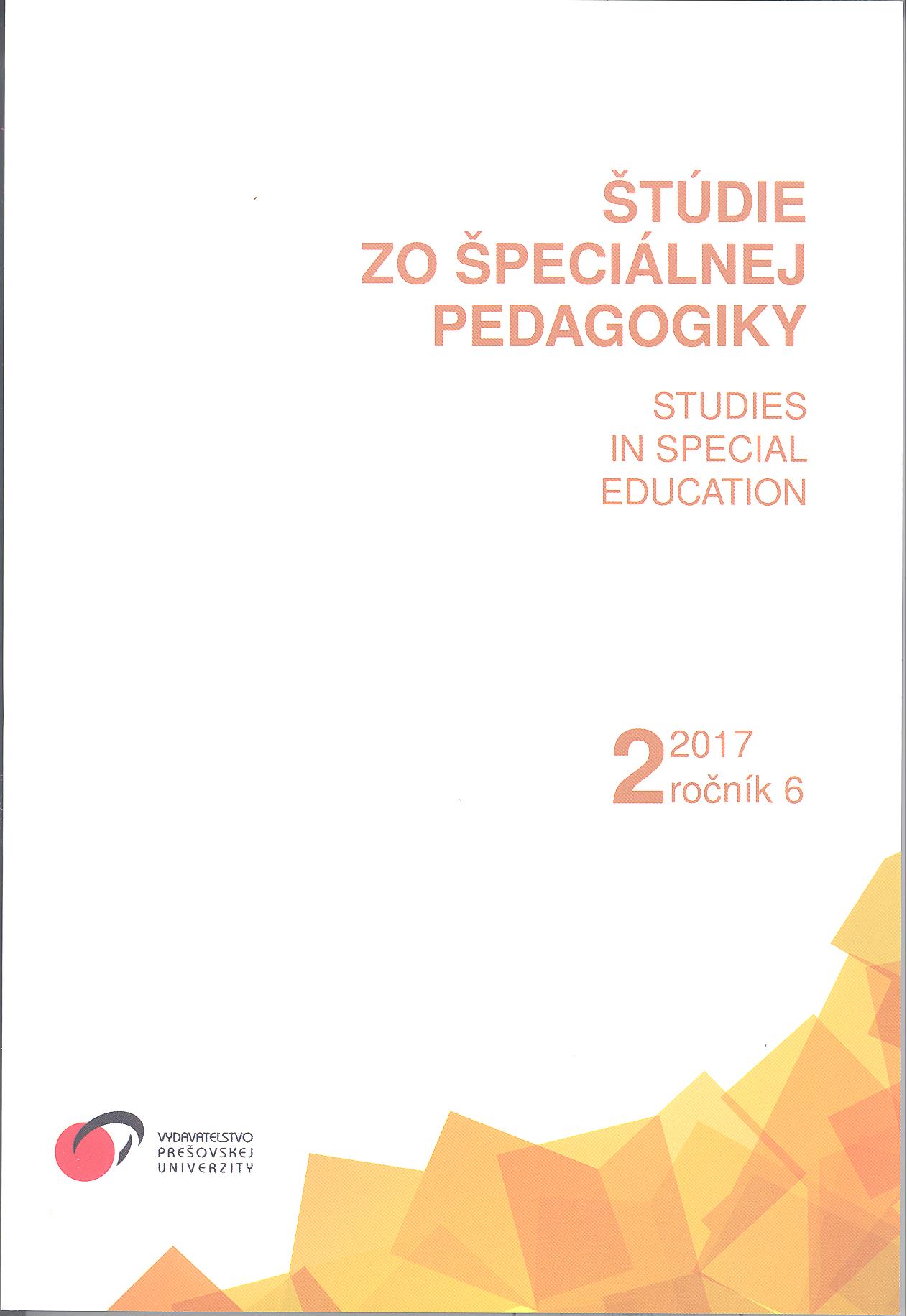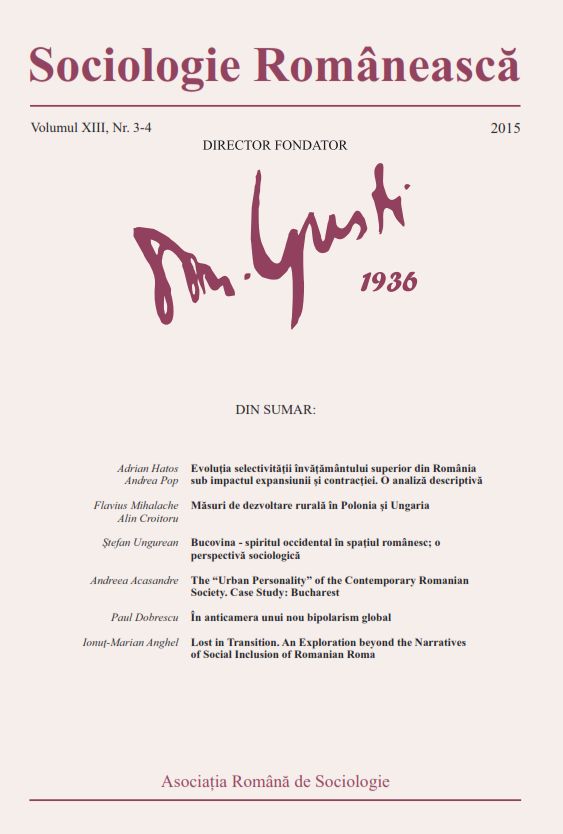
We kindly inform you that, as long as the subject affiliation of our 300.000+ articles is in progress, you might get unsufficient or no results on your third level or second level search. In this case, please broaden your search criteria.

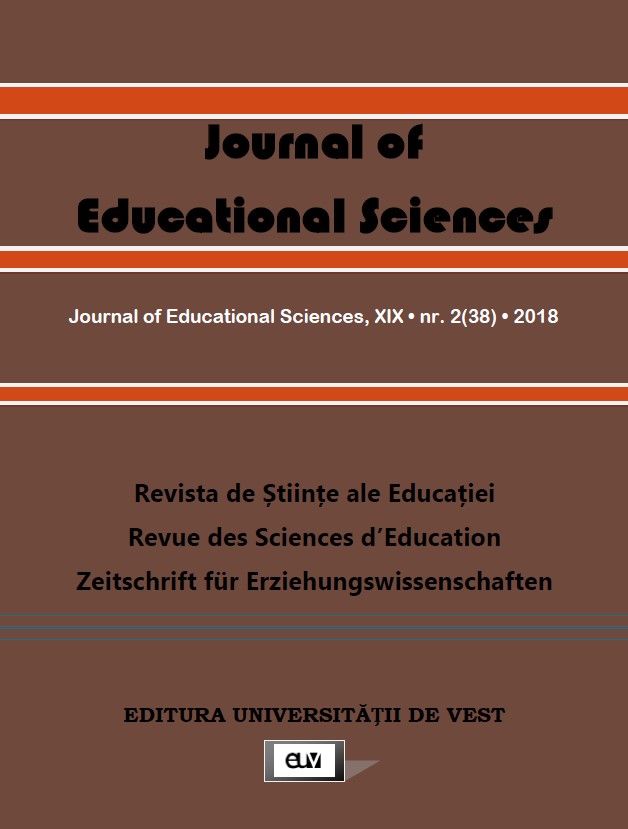
The present contribution discusses the legislation referring to persons diagnosed with Autistic Spectrum Disorders (ASD). From international documents (The Charter for Persons with Autism, the Convention on the Rights of Persons with Disabilities), to national legislation (The Law on Autism, The Methodological Norms for Applying the Law on Autism), we show these are still perfectible. We underline although there is a Romanian legislation for people with ASD, this is insufficiently known by parents of children with ASD, thus affecting the chances of children’s evolution. Some legislation articles are partially or incomplete respected in our country, and the equality of chances for autistic adult is missing, with no access to specialized services or labor market. Romanian legislation insufficiently regulates and does not establish any clear procedure to ensure access to specialized recovery services (medical, social, educational) for persons with ASD, the screening for early detection of ASD symptoms and periodical evaluations for children are not performed, and more, legislation infringes the right to education and work for people with ASD.
More...
Inclusive education is a strategic approach designated to facilitate successful learning for all children. Inclusive practices confirm that all children can learn and that they all need some form of support for learning. The stated goal of the inclusive school is to identify and minimize the barriers of learning. Inclusion is a dynamic process that is constantly developing, according to the contextual needs and culture of the reference group, while being part of a strategic system of promotion and construction of inclusive societies.
More...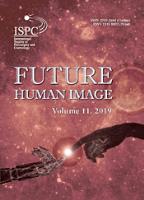
The aim of this work is to analyze the suitability of Science Education in teaching pupils with different educational needs. In the open education, the most important is to understand that the effectiveness of education has an influence on preparing for the job, finding a place on the labor market in accordance with the possibilities and predispositions, but also taking up professional activity, moving away from the help of others and the state. The article presents information on the inclusive trend in modern education. Attention is paid to the positions of the pupils, in particular, the disabled ones, and the teachers whose attitudes, specifics of work, appropriate methods and ways of passing knowledge, skills and competencies appear to be a real impact on the prospective adult life of foster children. The need to introduce far-reaching changes in the modern education system has been presented.
More...
The importance of savings in providing the financial well-being of an individual (a household) is unquestionable. Spending less money than one earns and saving for the future is a valuable rule and a good habit enabling one control personal finances. However, in real life circumstances, it does not always prove to be easy — people are often unable to gather incomes and/or rationally save. Conscious saving requires proper financial knowledge and skills, which are focused on making conscious and rational financial decisions and lead to effective financial behaviour, including in the field of saving. The quality of financial behaviour is determined by numerous factors, the special importance among which is attributed to incomes and the level of own knowledge and financial skills as well as individual traits of particular financial consumers are essential. The aim of this article is to study the level of basic financial knowledge and skills as well as fundamental behaviour in the field of saving among young people with Autism spectrum and Asperger syndrome.
More...
Individuals with severe learning disabilities have little or no speech and find it very difficult to communicate and learn new skills. Most of them were excluded from the education process due to the presumed inability to learn. However, it has been observed over time that individuals with severe learning disabilities (SLD) of all ages and types are able to learn to some degree. Because of the reduced ability to communicate they find it very difficult to interact with their environment and to cope independently hence they need constant support in daily living skills. Communication is critical even for individuals with SLD because it ensures the fulfillment of rights. This paper presents the communication skills that can be taught to children with severe learning disabilities to enable them to cope independently and to help improve the social interactions which are generally problematic or difficult.
More...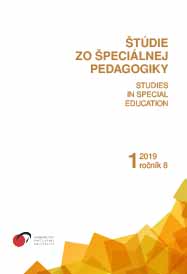
The article presents results of the literature review study dealing with the issue of the interaction of people with multiple disabilities and their interaction partners. The analysis of fourtheen research studies, which were conducted within years 2000-2016, found in the databases EBSCO,SCOPUS and ERIH+, describes the key elements of the social interaction between people with severe multiple disabilities and their interaction partner. These are, according to the analysis of the results, sensibility and perception, reciprocal attention and regulation, emotionality and all dynamically evolving categorization. The overview study complements the methodological aspects of the individual studies, reflects on the issue of terminological definition of basic components and also recommends transdisciplinary cooperation on the field of social work and special education.
More...
Text deals with the project, which is focused on the possibilities and circumstances of accessibility of academic environment and the study of people with mild intellectual disabilities. At the same time, the project addresses the possibilities of employing people with mild intellectual disabilities at universities, including the authentic passing of their experience to students without disabilities. In this framework, the methodology will be developed and tested.
More...
In this paper, we primarily dealt with the low representation of persons with disabilities in the tertiary education system and targeted specific barriers that keep people with disabilities outside the tertiary education process. The mentioned problem was approached from the perspective of social exclusion and one of the main tasks of the conducted research was to gain insight into the types of barriers that affect persons with different types of disabilities depending on their student status (they did not enroll at a university, they discontinued their studies, they are currently studying, they have completed their studies). The results were gained by conducting in-depth interviews covering all the mentioned categories of persons with disabilities. The results of the research point to the existence of numerous obstacles that people with disabilities face in the process of acquiring tertiary education. It has turned out that the surveyed persons with disabilities face insurmountable obstacles in the form of architectural, institutional and social barriers, depending on the type of disability and their social environment.
More...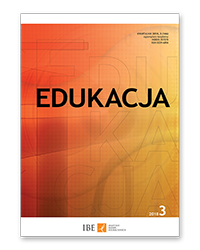
The adulthood of persons with autism is a challenge to them, their parents and therapists. They search for various advice, guidelines, and inspiration that would allow them to experience adulthood in a satisfactory way. Entering this phase of their lives is often associated with the difficulty of developing the readiness to take on the developmental tasks of this phase of life and act in new social roles. The authors of this article present suggestions on how to prepare persons with autism during adolescence to establish relationships with friends, build friendships and establish relationships in adulthood. There are also proposals on how such persons can develop interests and spend their free time in this phase of life. The article aims to show the importance of the role of education about adulthood for persons with autism and how to plan its course, so that they can fully realize themselves in adult life.
More...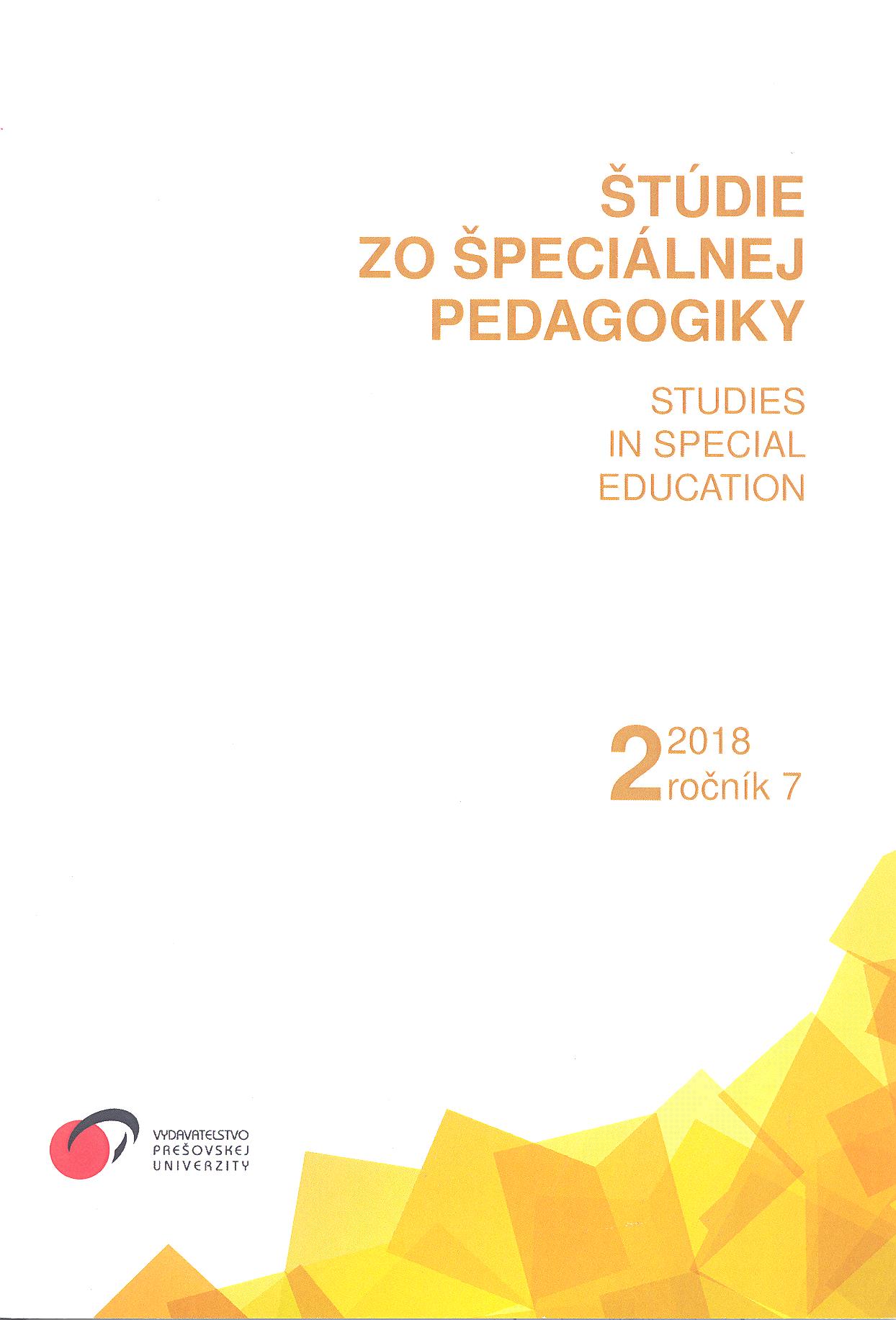
In the text there is confrontated Comenius’ understanding of a school as a workshop of humanity with so called inclusive school. Workshop of humanity is a place where life wisdom is achived through education, which has its limitation for Comenius as well. Inclusive school aims to include all dimensions of otherness, because heterogenity is for this concept enriching principle in all circumstances. However, it encounters specific challenges of education, especially of pupils with intellectual disabilities and pupils of Roma origin. Assessment of these pupils has serious flaws. Their didactical-methodological support is not processed at all and adhesed on a declaration of formal requirements. The Czech image of inclusive school is an ideological construct that is promoted politically. And therefore it misses the educationally argumented school as a workshop of humanity.
More...
Study deals with the issue of reading competence stimulation of students with moderate intellectual disabilities in older school age in special secondary school through the implementation of modified. stimulation programme HYPO – Excercise for pre-school and younger-school age children for reinforcement of perceptual-motoric and cognitive functions including attention (Michalova, 2015). The paper presents findings from the research on the level of reading competence in selected areas – reading technique, way of reading, number of correctly read words, reading speed, and reading comprehension, conducted through the assessment measure Educational diagnostics of younger students’ reading (Čižmarovič, Kalná, 1991) within the research sample (N=6), based on the comparison of input and output measure before and after the implementation of modified stimulation programme HYPO.
More...
The main aim of the research study was to analyze the position of teaching assistant in theinclusive education of pupils with special educational needs at primary schools. On the basis of themain aim, partial aims were set, which were mainly focused on determining the level of cooperation between teaching assistant and teacher, finding the state of preparedness of the teacher’s assistantsfor the inclusive education of pupils with special educational needs and on the implemented measuresfor the successful education of these pupils also. These aims were based on three hypotheses, whichwere tested in the research study. To achieve the aim of the research study was used a quantitativemethod in the form of a questionnaire of own design.
More...

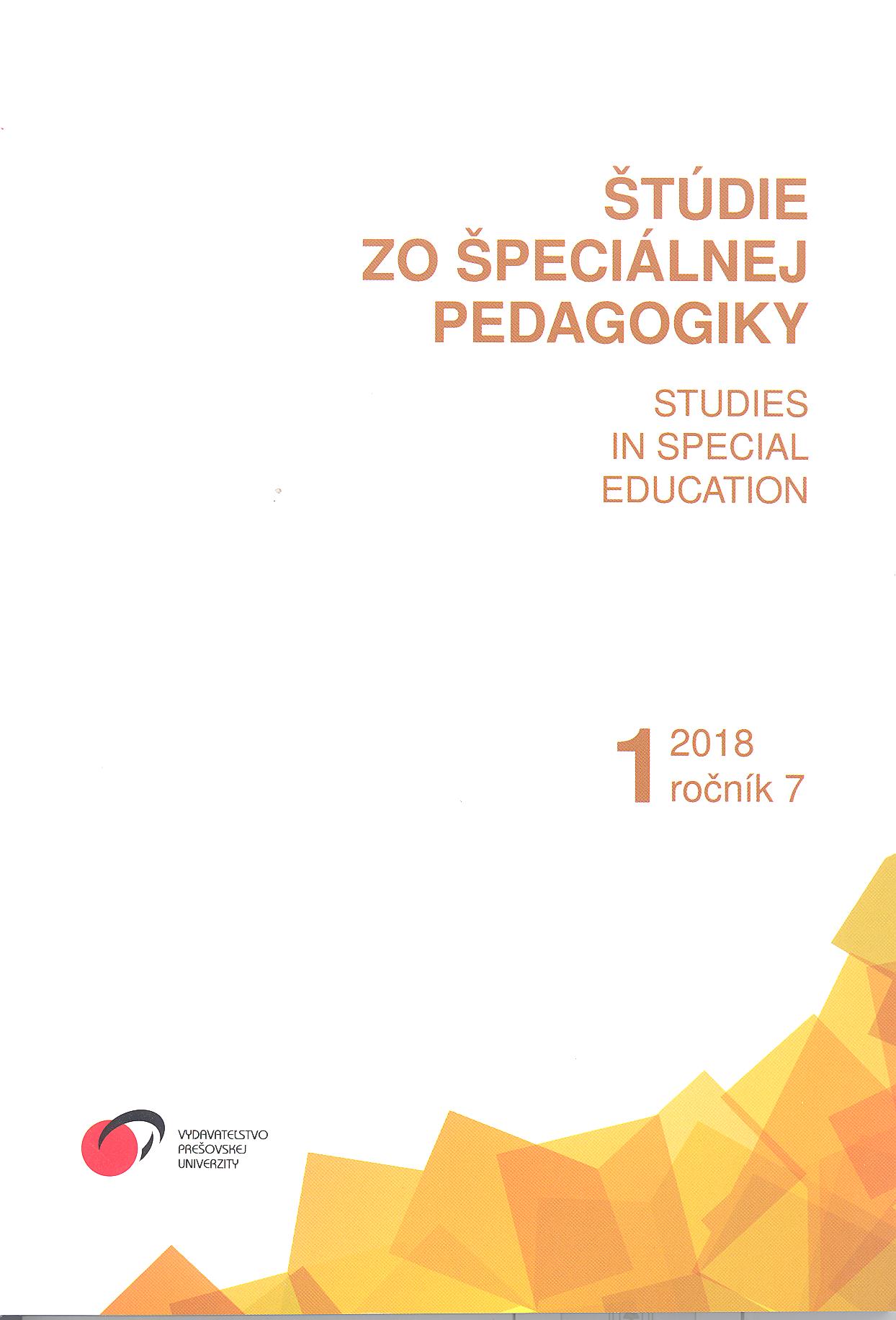

This article follows the struggle of parents with children that suffered from developmental problems through their correspondence with school authorities in Sarajevo and Belgrade. The correspondence starts in 1935, when a group of parents first approached the authorities, with the last entries being from April 1940, when the decision was made to found a special school at the XIV primary school in Sarajevo.
More...
Main objective of the research study was to analyze the activities of the individual staff of the school counseling center in mainstream schools. On the basis of the main objective partial aims were set, which were mainly focused on analyzing the knowledge of the headmasters of primary schools in the area of the state level of curriculum documents (Framework Educational Program for Elementary Education) and the school level of curriculum documents (school educational program of the school), identifying the main source of information for headmasters on individual types of disability or disadvantage, or determining the level of cooperation between teachers and the staff of the school counseling center. These aims were based on three hypotheses which were tested in the research study. All determined hypotheses were confirmed on the basis of the obtained results. To achieve the aim of the research study was used a quantitative method in the form of a questionnaire of own design.
More...